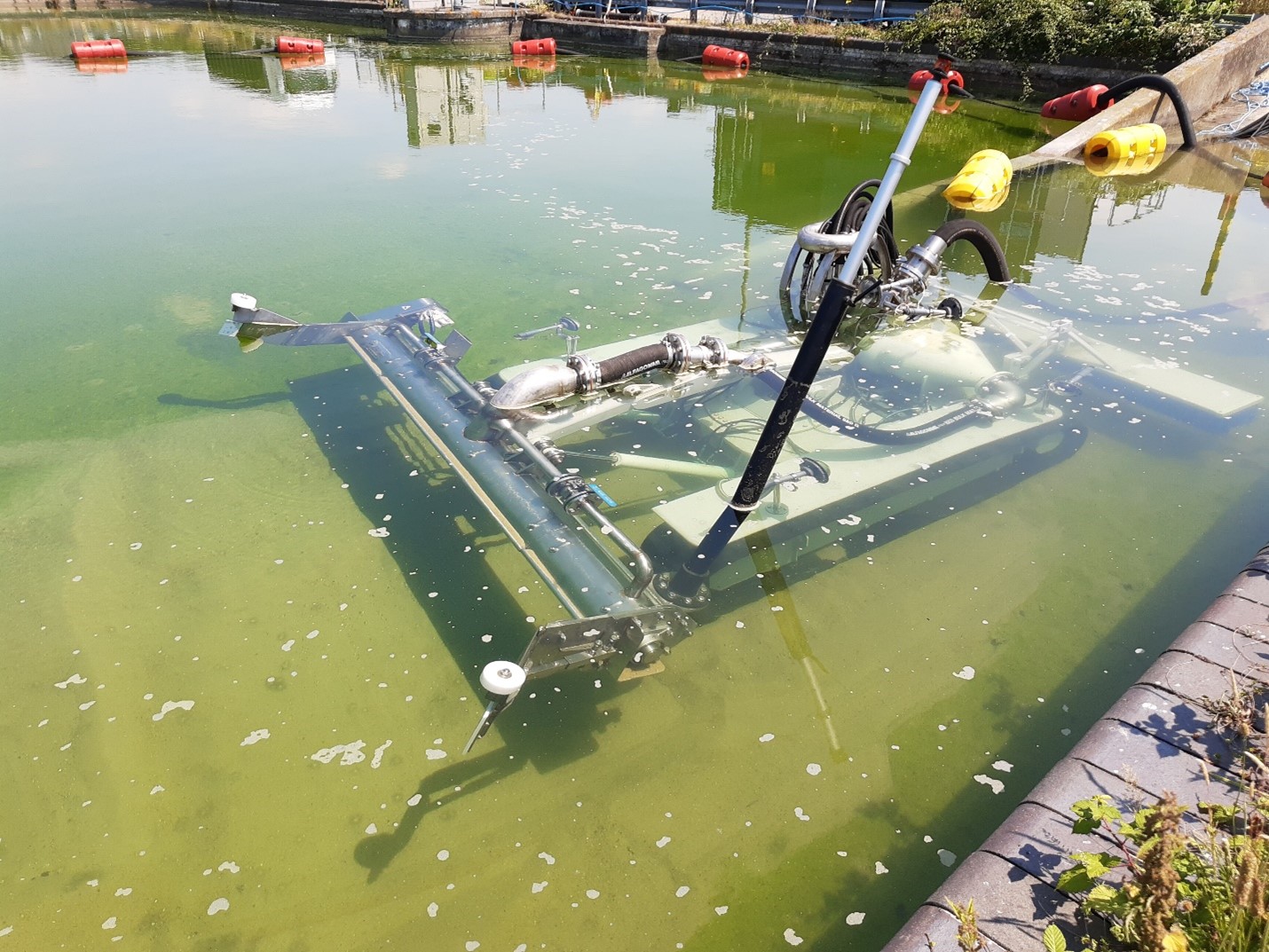SandSCAPE project
Project highlights
Using robots to clean slow sand filters. Making chemical-free water purification more efficient and environmentally friendly.
Ofwat project funding
£2 million
Collaboration
We're working with three partner water companies
Project status
Due to be completed in October 2028
Challenge: Making slow sand filters more productive
Slow sand filtration (SSF) is a natural and chemical-free process for purifying drinking water. It was first deployed nearly 200 years ago to supply clean water to London and still remains a vital part of modern water treatment.
Water is purified in the process as it percolates through a biologically active sand bed. Over time, the surface of the sand filter becomes clogged with impurities. It must be cleaned to maintain optimal performance.
Current cleaning methods require the filter bed to be fully drained. The top layer of sand is then removed, washed, and stored for re-use. The filter is then carefully refilled with water and flow is restarted. The water is run to waste or recycled until the filter ecology recovers and water quality targets are achieved. This cleaning cycle results in around a 20% loss in filter capacity and some wasted water.
We want to fix this inefficiency by developing an alternative method. Underwater cleaning could transform SSF into a continuously operating process. With no need for draining, this would be less disruptive to the filter biology and save energy and water. This enhances sustainability and increases resilience to climate change and customer demand.
Solution: Using robots to clean the filter
The project will explore the use of specially designed underwater robots to skim, clean, and reset the surface of slow sand filters. There will be no need to drain the filter bed with this new technology. If successful, this will turn SSF into a continuous process.
How the project works
Two filter cleaning robots will be tested. One will clean the sand in-situ and replace it. It will pump away any dirty water. The other will pump the sand and captured particles out of the filter for further processing. Testing these different approaches will help us decide which achieves the best results.
A robotic pond cleaning device will be used to remove natural plant growth in the filter. We'll also check whether weed removal helps the operation of filters cleaned by conventional dry sand skimming.
We'll monitor the robots' impact on filtered water quality and treatment process efficiency. The project will also consider the societal benefits and environmental sustainability of this approach.
This information will help operators and engineers make existing slow sand filters more efficient. It will also inform the design of new and improved solutions.

Prototype slow sand filter cleaning robot
Timeline and collaboration
The £2 million project funded by Ofwat is expected to take three and a half years. We aim to complete it by October 2028.
We're collaborating on this project with:
- South West and Bournemouth Water
- Affinity Water
- Northumbrian, Essex and Suffolk Water
- Cranfield University
- Imperial College London
- RSE (Ross-Shire Engineering)
- Panton McLeod